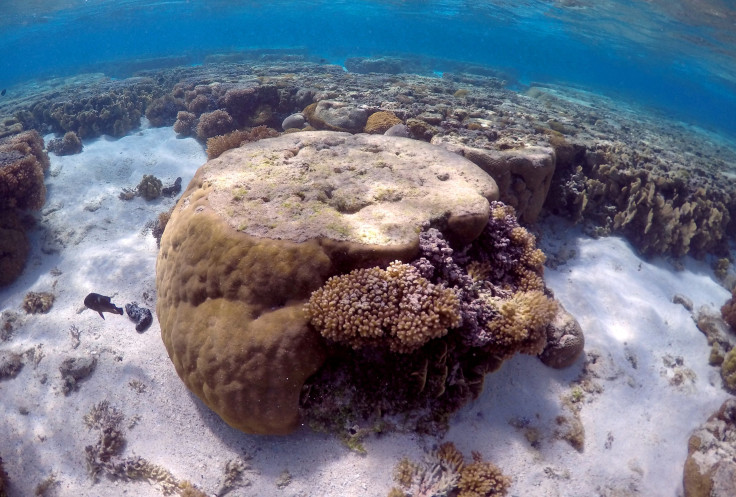Can Coral Reefs Sustain Climate Change? Scientists Urge More Research

Scientists are unsure of whether coral reefs will be able to sustain climate change in the future as waters warm, carbon dioxide levels rise and bleaching events continue to become more frequent. Major bleaching events took place last year and continued into this year, now scientists are saying more research is needed to determine whether coral will be able to adapt to climate change.
Eight research recommendations were published Friday in the journal Nature Climate Change by 22 biologists from five countries around the world, said a release from the ARC Centre of Excellence for Coral Reef Studies. All of the biologists involved agree that further research is needed to determine how corals respond to climate change, an area where there is a large gap in current research.
The ultimate goal to save the coral reefs would be to eliminate climate change and stop waters from warming and carbon emissions from rising but researchers are hoping to discover what would happen under less-than ideal circumstances of warming. Warming waters and higher levels of carbon in the water can cause mass bleaching events that kill off coral.
What is coral bleaching?
When waters warm coral bleaching events occur. The warming water causes the corals to release their algae that live in the tissue of the coral. But the algae is an essential food source for the coral so once expelled the coral comes under high stress levels, according to the National Oceanic and Atmospheric Administration. This causes the coral to appear completely white, hence the name “bleaching.” When a coral becomes bleached it is not necessarily dead, the coral can still recover but it is at a higher risk for death when under bleaching conditions. Exceptionally cold waters can cause similar problems for corals.
Corals are extremely important for supporting ecosystems and protecting the coastlines they border. If they die off many sea creatures will lose habitats and food sources. “While our only real chance for their survival is to reverse climate change, a nugget of hope exists – that the corals may be able to adapt to their changing environment,” said Gergely Torda from the ARC Center of Excellence, according to the press release.
Some marine animals and organisms can adapt over generations but it’s unclear whether corals will be able to do the same. The study outlines specific research that could be done to study this process called transgenerational plasticity in corals. The study also addresses the mechanisms that might be enable plasticity in certain corals in the future. More specifically the study focused on stony reef-building corals that serve as ecosystem supporters.
© Copyright IBTimes 2024. All rights reserved.





















